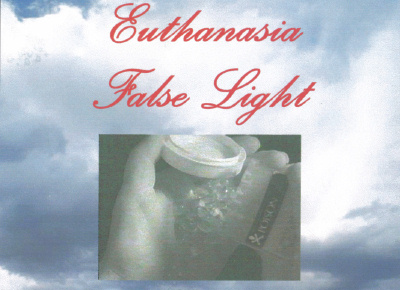(Also see Health Care Reform, Advance Directives and POLST)
Articles
“Doctors Ponder Delicate Talks As Medicare Pays For End-Of-Life Counsel”
(Kaiser Health News — March 16, 2016)
Physicians can now bill Medicare $86 for an office-based end-of-life counseling session….
Nurse practitioners and physician assistants can also get paid for having the talks….Last July a stroke left a 95-year-old nursing home patient of his with difficulty speaking and swallowing. The woman’s daughter questioned [Dr.] Meigs’ decision not to give the patient a feeding tube. Meigs reassured the daughter that her mother had made clear she didn’t want that in many talks with him and in her advance directive. No heroic measures were made and the woman died a few days later.
“Advance Care Planning (ACP) as an Optional Element of an Annual Wellness Visit (AWV)”
(Department of Health and Human Services; Centers for Medicare & Medicaid Services)
Effective Date: January 1, 2016
Voluntary ACP means the face-to-face service between a physician (or other qualified health care professional) and the patient discussing advance dir4ectives, with or without completing relevant legal forms.
Voluntary ACP upon agreement with the patient, would be an optional element of the AWV.
“10 FAQs: Medicare’s Role in End-of-Life Care”
(Kaiser Family Foundation — November 5, 2015)
Starting in 2016, Medicare will begin covering advance care planning — discussions that physicians and other health professionals have with their patients regarding end-of-life care and patient preferences — as a separate and billable service. The following 10 FAQs provide information on Medicare’s role in end-of-life care and advance care planning.
“Doctors Should Bill for Life-or-Death Decisions”
(Bloomberg — August 26, 2013)
The Care Planning Act would create a billing code for “planning services,” allowing physicians to charge for these lengthy and challenging sessions with patients and their extended support networks. The legislation goes on to require that the meeting result in a documented plan.
“A Novel Way to Document End-of-Life Preferences”
(New York Times — July 25, 2013)
Some California physicians took a new approach to what is called advance care planning. “They experimented with bribery. incentivizing doctors.”
If residents recorded this information for at least 75 percent of discharged patients, for three of the four quarters in the academic year, they each got a $400 bonus. “We also don’t know whether simply having a standard form in your medical records means that you will actually have your wishes respected.”




